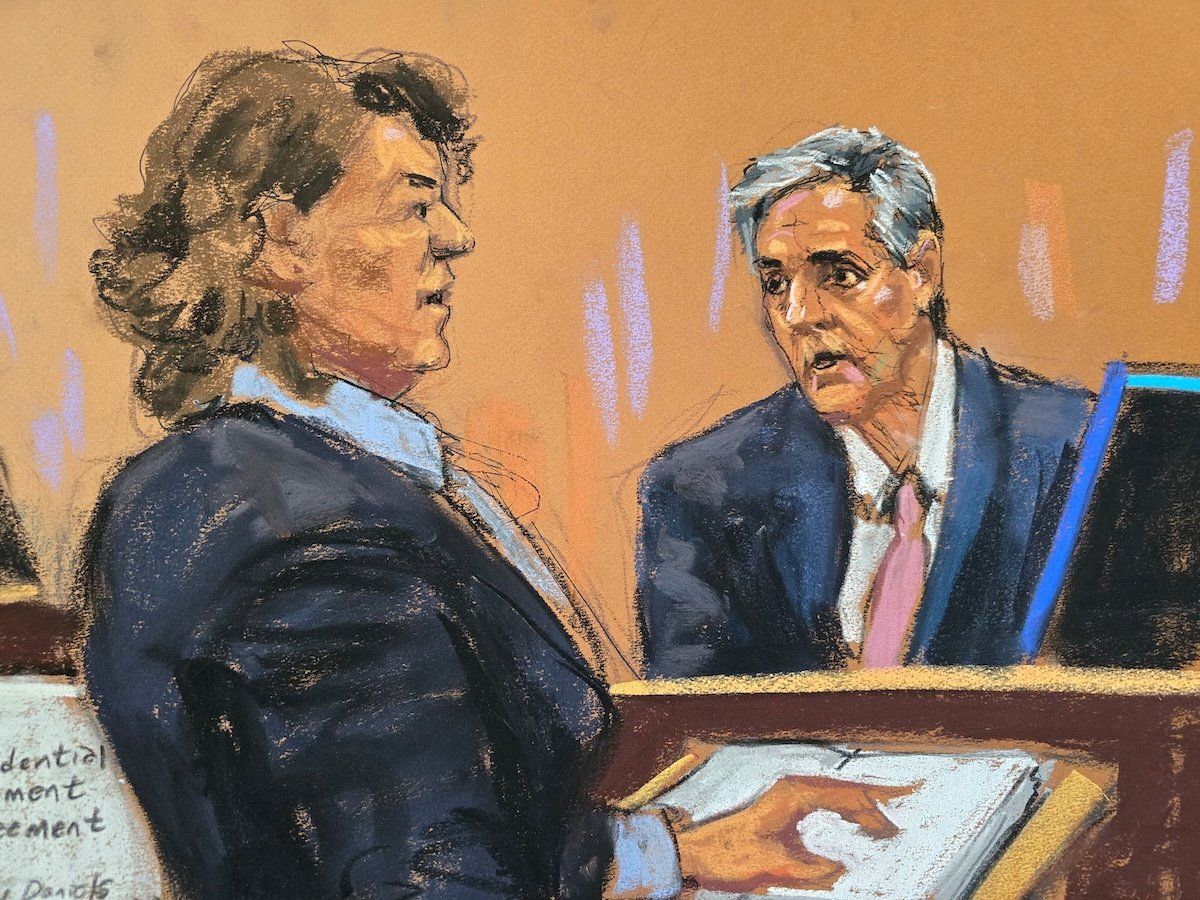Michael Cohen is questioned by prosecutor Susan Hoffinger in Manhattan state court on May 13, 2024, in this courtroom sketch.
Prosecutors sought to establish how Trump controlled his image (allegedly through payoffs and pressure tactics) and what motivated Cohen to participate so enthusiastically (praise from Trump). He testified that he used his relationship with David Pecker, former CEO of American Media Inc., to buy the life rights to stories that could be damaging to Trump’s campaign, and funnel money through shell corporations to create distance.
Cohen, who served three years in prison for federal crimes including campaign finance violations related to hush-money deals for Trump, was clear that the former president’s interest in killing these stories had little to do with concerns for his marriage. “He wasn't even thinking about [former First Lady Melania Trump], this was all about the campaign," Cohen testified.
The former president’s attorneys will have their turn with Cohen next, and based on their strategy with other witnesses, they’re likely to try to paint Cohen as a known liar. We’ll be watching how he handles cross-examination – and whether Trump sounds off against Cohen on social.
